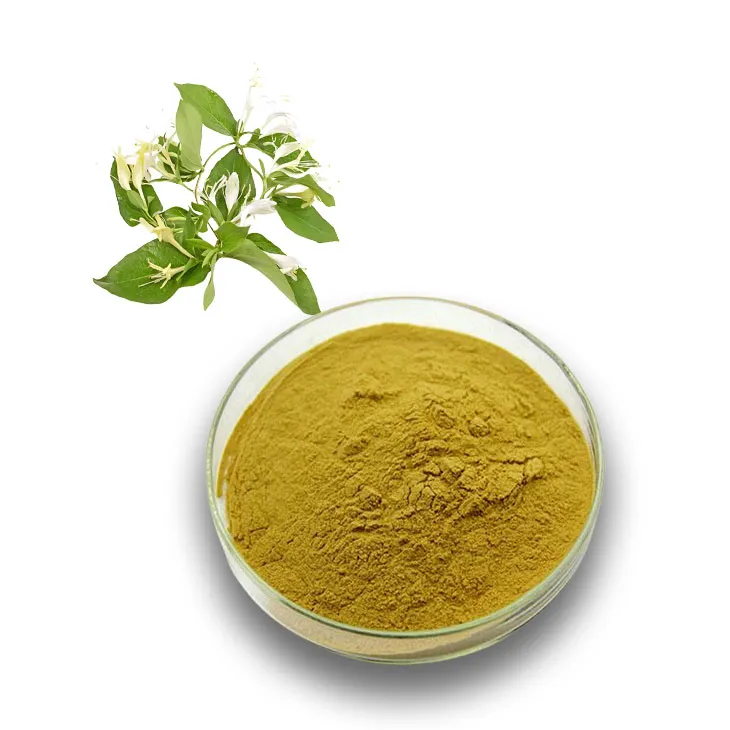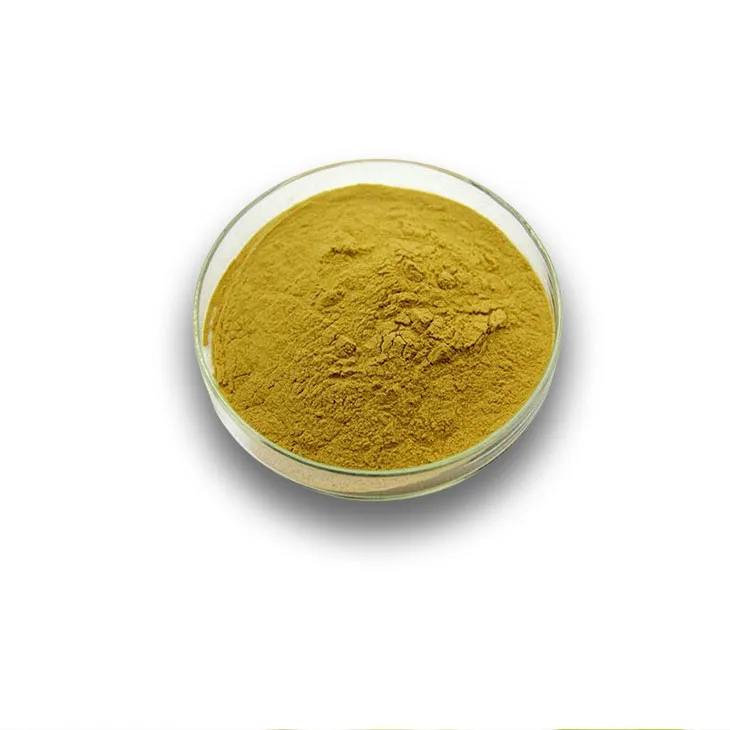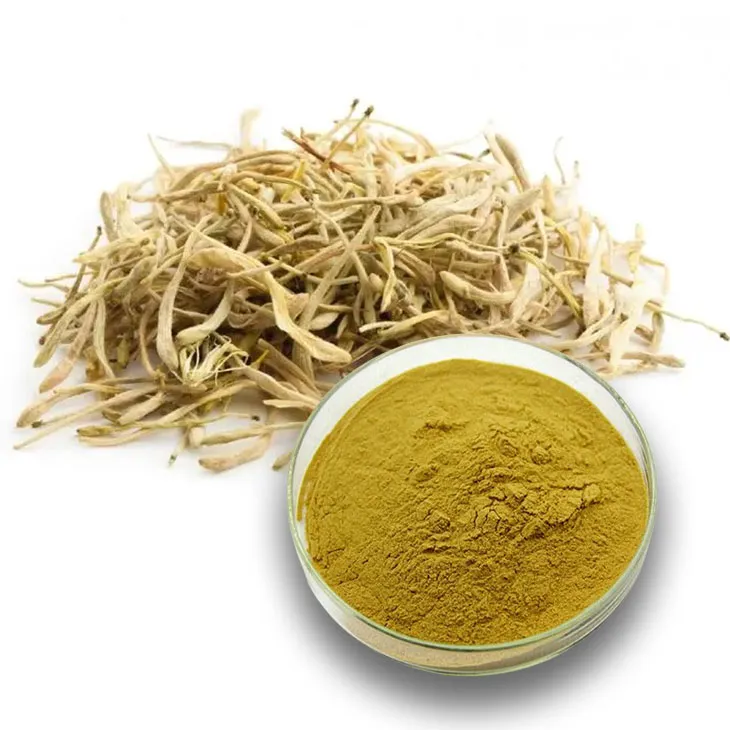- 0086-571-85302990
- sales@greenskybio.com
Commercial Advantages of Organic Honeysuckle Pollen
2024-12-21

1. Introduction
Organic Honeysuckle Pollen has become an increasingly significant product in the commercial market. With the rising awareness of health and environmental protection among consumers, it has emerged as a product with great potential. This article will explore the various commercial advantages of organic Honeysuckle Pollen in detail.

2. Nutritional Health Benefits
Rich in Nutrients: Organic Honeysuckle Pollen is a nutritional powerhouse. It contains a wide array of vitamins such as vitamin A, vitamin C, and several B - vitamins. These vitamins play crucial roles in maintaining good health. For example, vitamin A is essential for vision, while vitamin C is a powerful antioxidant that helps boost the immune system.
In addition to vitamins, it also contains minerals like potassium, calcium, and magnesium. Potassium is important for maintaining proper heart function and regulating blood pressure. Calcium is well - known for its role in building strong bones and teeth, and magnesium is involved in many biochemical reactions in the body.
The presence of bioactive substances further enhances its value. These substances may have antioxidant, anti - inflammatory, or other beneficial properties. For health - conscious consumers, products containing such a rich source of nutrients are highly appealing.
Popular in Health - Related Industries:
- In the health food industry, organic honeysuckle pollen can be used as an ingredient in energy bars, breakfast cereals, and smoothies. Its nutritional content makes it a great addition to products aimed at providing a healthy boost to consumers.
- In the dietary supplement industry, it can be encapsulated or made into tablets. Consumers who are looking for natural ways to supplement their diet with essential nutrients are likely to choose products containing organic honeysuckle pollen.

3. Production - Related Advantages
Organic Farming and Purity: The organic nature of honeysuckle pollen is a major selling point. Organic farming practices are strictly adhered to during its production. This means that the use of pesticides and chemical fertilizers is severely restricted or completely prohibited.
As a result, the pollen is free from harmful chemical residues. Consumers are increasingly concerned about the potential health risks associated with pesticide - contaminated food products. Organic honeysuckle pollen offers a cleaner and more natural alternative, which is especially attractive to those who are health - conscious and have concerns about food safety.
Quality Assurance: Organic production also ensures a high - quality product. The absence of chemical interference allows the honeysuckle plants to grow in a more natural environment, which may enhance the quality of the pollen they produce.
For example, the natural growth process may lead to a more balanced nutrient composition in the pollen. Additionally, organic farming methods often involve more careful cultivation and harvesting techniques, which can further contribute to the overall quality of the product.

4. Marketing Advantages
Unique Properties for Promotion: The unique properties of honeysuckle pollen provide excellent marketing opportunities. Its pleasant aroma is one of its most distinctive features. This can be used as a selling point in product marketing. For example, in the development of scented products such as natural perfumes or aromatherapy products, the aroma of honeysuckle pollen can add a unique and appealing touch.
Medicinal Values and Marketing:
- Honeysuckle pollen has potential medicinal values. In traditional medicine, honeysuckle has been used for its anti - inflammatory and antibacterial properties. These traditional uses can be incorporated into modern marketing strategies.
- For example, products containing organic honeysuckle pollen can be promoted as having natural healing properties. This can attract consumers who are interested in alternative medicine or natural remedies.
Capitalizing on the Organic Trend: The growing trend of natural and organic products is a significant advantage for organic honeysuckle pollen. Consumers are more inclined to choose organic products over conventional ones.
This trend is driven by factors such as environmental awareness, concerns about chemical additives, and a preference for more natural and sustainable products. Organic honeysuckle pollen can ride this wave and gain a larger market share.

5. Conclusion
In conclusion, organic honeysuckle pollen has numerous commercial advantages. Its nutritional benefits, production - related qualities, and marketing potential all contribute to its position as a product with great commercial promise.
As the market continues to evolve and consumer preferences shift towards healthier and more sustainable options, organic honeysuckle pollen is well - positioned to thrive. However, it is also important for producers and marketers to continue to uphold high standards in production and promotion to fully realize its commercial potential.
FAQ:
What are the main nutrients in organic honeysuckle pollen?
Organic honeysuckle pollen is rich in various vitamins, minerals and bioactive substances. However, specific nutrients may include elements like vitamin C, B - vitamins, minerals such as potassium and magnesium, and bioactive compounds that are beneficial for health.
How does the organic farming of honeysuckle pollen ensure its quality?
Organic farming practices for honeysuckle pollen restrict the use of pesticides and chemical fertilizers. This means that there are no harmful chemical residues in the pollen, making it a cleaner and more natural product. As a result, it has a higher quality compared to non - organic counterparts, which may be contaminated with chemicals.
What are the potential medicinal values of honeysuckle pollen?
While more research may be needed, some traditional uses suggest that honeysuckle pollen may have anti - inflammatory, antioxidant, and antibacterial properties. These potential medicinal values are often related to the bioactive substances present in the pollen.
How can the pleasant aroma of honeysuckle pollen be utilized in marketing?
The pleasant aroma of honeysuckle pollen can be a great marketing tool. It can be emphasized in product descriptions and promotions. For example, in the marketing of health foods or dietary supplements containing honeysuckle pollen, the alluring aroma can be described to attract consumers who are looking for products with a pleasant sensory experience.
Why are health - conscious consumers attracted to organic honeysuckle pollen?
Health - conscious consumers are attracted to organic honeysuckle pollen because it is rich in nutrients, produced through organic farming (which is seen as safer and more environmentally friendly), and may have potential health benefits. It fits well into their lifestyle choices of consuming natural and healthy products.
Related literature
- The Nutritional and Medicinal Properties of Honeysuckle Pollen"
- "Organic Farming and the Quality of Honeysuckle Pollen"
- "Marketing Strategies for Organic Honeysuckle Pollen - based Products"
- ▶ Hesperidin
- ▶ Citrus Bioflavonoids
- ▶ Plant Extract
- ▶ lycopene
- ▶ Diosmin
- ▶ Grape seed extract
- ▶ Sea buckthorn Juice Powder
- ▶ Fruit Juice Powder
- ▶ Hops Extract
- ▶ Artichoke Extract
- ▶ Mushroom extract
- ▶ Astaxanthin
- ▶ Green Tea Extract
- ▶ Curcumin
- ▶ Horse Chestnut Extract
- ▶ Other Product
- ▶ Boswellia Serrata Extract
- ▶ Resveratrol
- ▶ Marigold Extract
- ▶ Grape Leaf Extract
- ▶ New Product
- ▶ Aminolevulinic acid
- ▶ Cranberry Extract
- ▶ Red Yeast Rice
- ▶ Red Wine Extract
-
Rosemary extract
2024-12-21
-
Baicalin
2024-12-21
-
Bitter Melon Extract
2024-12-21
-
Eucommia Ulmoides Extract
2024-12-21
-
Uridine-5'-monophosphate Disodium salt
2024-12-21
-
Kidney Bean Extract
2024-12-21
-
Beta Carotene
2024-12-21
-
Scutellaria Extract
2024-12-21
-
Longan Extract
2024-12-21
-
Garcinia Cambogia Extract
2024-12-21





















